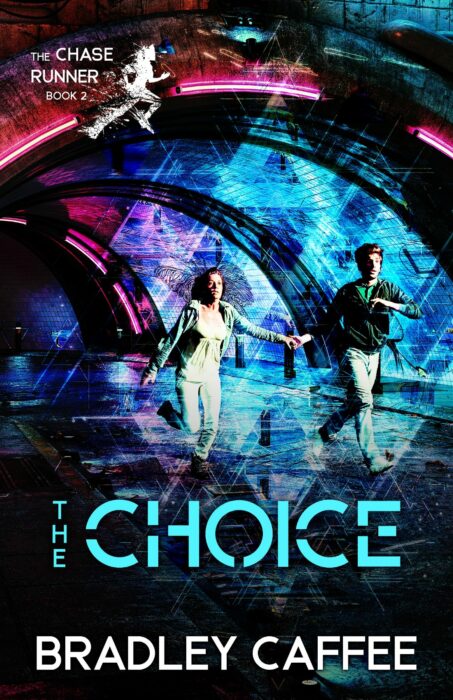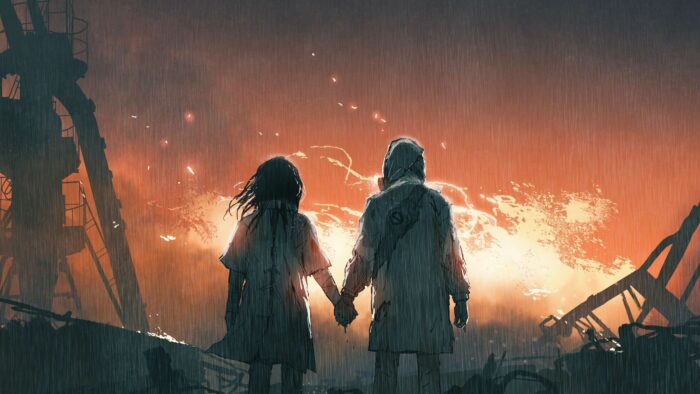Christian-Made Fantasy Can Shine Light in the Grimdark
Certain readers in the Christian world believe fiction should be “safe”—safe from swearing, safe from sex, safe from violence, safe from sin. That is, when we read a book, we should get straightforward morals, nothing too scary, and a happy ending.
In contrast, readers in the general market see sex scenes and swearing as fair game, even in young-adult novels. They often expect endings to be ambiguous and grim. Many stories are nihilistic and many heroes are morally gray, because that’s considered more “real.” This popular genre trend is known as “grimdark.”
Yet when we look back at the founding father of fantasy fiction—himself a devoted Christian—neither “safe” fiction nor grimdark feel like good descriptors. Where exactly do we fit J. R. R. Tolkien?
Hobbits as heroes
Tolkien’s The Lord of the Rings lacks swearing and sex scenes. While the epic is full of war, none of the books dwell on gore. Yet people die. The power of evil seems overwhelming. Hope feels distant, and even good people are corrupted.
Still, despite that overwhelming evil, the ends never justify the means. Gandalf does not become truly “gray” by embracing the dark power of the One Ring to defeat Sauron. Aragon does not depose weak leaders in Rohan or Gondor to better prepare the people for war. Frodo does not kill Gollum despite the danger Gollum poses.
Perhaps strangest of all, The Lord of the Rings’ greatest heroes are not knights in shining armor. They are hobbits—small, kind, simple folk, whose joy and resilience make greater difference than any warrior’s blade.
In 2017, fantasy author Alexandra Rowland coined the term “hopepunk” to describe a genre that was both realistic and hopeful:
Hopepunk says that kindness and softness doesn’t equal weakness, and that in this world of brutal cynicism and nihilism, being kind is a political act. An act of rebellion.1
That’s the kind of story Tolkien told—a story unafraid to show evil in the world, yet also unabashedly hopeful that goodness can overcome it.

Bradley Caffee’s young-adult dystopian novel The Choice released February 2022 from Mountain Brook Fire.
The shadow of death and the candle of hope
As the publicist for Mountain Brook Fire, I’ve had the opportunity to work with several speculative fiction authors who share Tolkien’s vision, and they have truly inspired me with their work. Take Bradley Caffee for example. Bradley has walked through his own valley of the shadow of death—pastoral burnout—and it deeply influenced the fiction he reads and writes. Here’s Bradley’s story in his own words:
Looking back, I now see that I lived my life on the false premise that a life lived well for God would avoid hardship. I honestly believed that if I devoutly remained close to God and steadfast on the mission he’d given me, then I would successfully avoid true, life-altering trials.
Then, it all came crashing down. Despite my best efforts, I lost my career. I watched as my once loving church treated my exit from ministry like an ugly divorce, tossing me and my family to the curb. I questioned my calling. I wondered about my future. I doubted my salvation.
God, hadn’t I followed you? How could this happen?2
If we have faith that only expects green pastures and still waters, we will struggle to see God in the valley of the shadow of death.3 Too often, that valley isn’t acknowledged by the Christian community or in Christian fiction. Yet as Bradley wrestled with these dark questions, he found hope through reading and writing in a genre that seems the very opposite of hope: dystopian fiction.
I can’t get enough of dystopian fiction. Something about characters who flourish in the pressure-cooker of a future world that wishes to squash them has always inspired me. Seeing someone, even someone fictional, throwing off the oppression that works so hard to keep them in line and freeing others to do the same hits a soul note that lights me up from the inside out.
To be honest, there are dystopian books out there that really don’t end on a very positive note. After all, this genre is about “the world as it shouldn’t be.” But in dystopian, there is also an incredible opportunity to show how brightly light shines in darkness. A single candle may not seem like much, but imagine how brightly that single candle shines when surrounded by pitch blackness—and imagine how far that light can reach.4
So, that’s the kind of dystopian stories Bradley writes: a world of darkness where the smallest acts of goodness shine bright for all to see. A world full of trouble, yet one that inspires us to take heart—because it has already been overcome (John 16:33).
Carrying the light
At Mountain Brook Fire as well as at Lorehaven and in the Christian spec-fic community at large, we have the chance to carry on the torch—or perhaps a candle. In a world split between those who embrace darkness or attempt to avoid darkness, we can uplift the stories that carry light into that darkness. One candle of imagination can light another, then another, then another, so that every spark of hope reminds us of the light of the world, the greatest hope of all.
- Alexandra Rowland, “The opposite of grimdark is hopepunk,” Tumblr post, 2017. ↩
- Bradley Caffee, “Pain with a Purpose,” Mountain Brook Ink newsletter, February 2022. ↩
- See Psalm 23. ↩
- Bradley Caffee, “Pain with a Purpose,” Mountain Brook Ink newsletter, February 2022. ↩





























Love the article Tim, Thanks for writing it!
I was encouraged and inspired by it, as a person who one day may write fiction for God’s glory and who likes the fantasy & sci-fi genre.
I’m just starting to read Christian fiction in these areas and do want the hope and light that the Christian faith can bring, without the too much safe, milktoast story that is devoid of realism.
Reading LOTR, The Fellowship of the Ring and love it. Just the kind of Christian book I want to read. : )
So glad my article was encouraging to you, Nelson! Keep enjoying Lord of the Rings. In my opinion, it keeps getting even better as it goes on.
I would like to posit the inclusion of noblebright in the article as different from hopepunk. Noblebright is also explicitly in opposition to grimdark in ethos (not that it’s always happy fluffy unicorns and rainbows, but that it’s worth choosing kindness, generosity, and sacrificial love even when it’s painful and looks hopeless, because it makes the world a better place).
However, Hopepunk is explicitly born out of an anti-Trump, anti-conservative, anti-conservative Christian value system (and is explicitly pro-LGBTQ+), while Noblebright strives to be relatively apolitical but tends toward much more conservative values (and I’m sort of the unofficial head of a very unorganized movement, and I am a conservative Christian with traditional views of marriage, gender identity, etc.). There have been people who identified as noblebright who did not hold to these values, and I do not want to tell them “no” because the books for the most part read as noblebright to me. But for the most part, the noblebright movement has a more traditionally Christian interpretation of “good” than hopepunk does.
There was an article on Vox that really mischaracterized the noblebright movement as about royalty/nobility and hopepunk as the new, better alternative. But noblebright was always about nobility of character and the way that even small characters (like hobbits!) have the ability and responsibility to choose good and selflessness over selfishness and evil.
Two articles I’d like to point to for more info about noblebright are: https://noblebright.org/noblebright-fantasy-an-overview/ (which I wrote several years ago) and https://noblebright.org/fantasy-time-writers-manifesto/ (by Nicholas Kotar)
All this emphasis on sweetness and light and feel goodism disturbed me for years. Before the internet made communities like this possible.
I wondered why the prairie romances bugged me so much. Weren’t they just obeying Philippians 4:8 by focusing on goodness?
Then I realized I disliked the “messages” of the CBA because in denying darkness existed it was untrue. Which is against what Phil. 4:8 teaches.
Even the Bible would not pass muster with the CBA because of how dark many stories get.
Fabulous insights, Tim. Thanks.